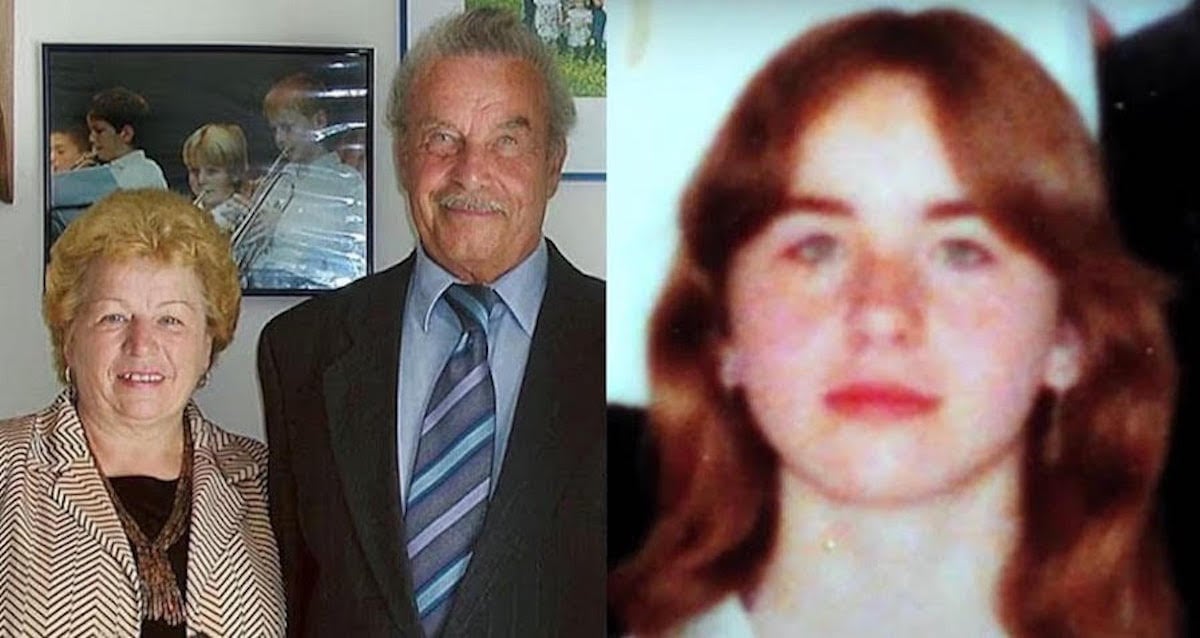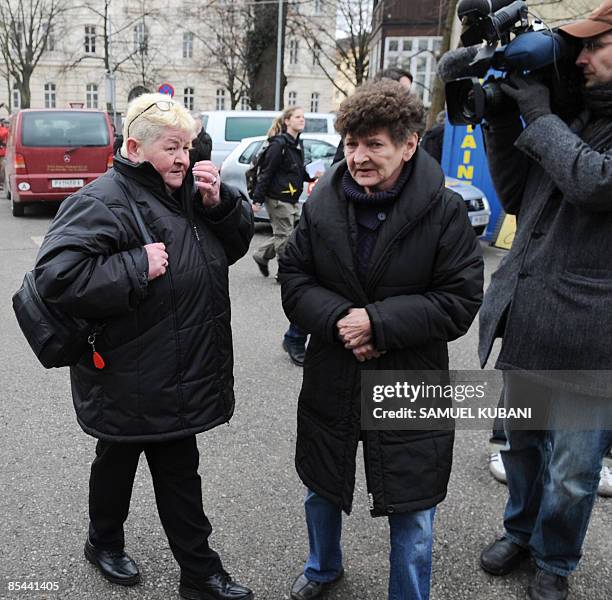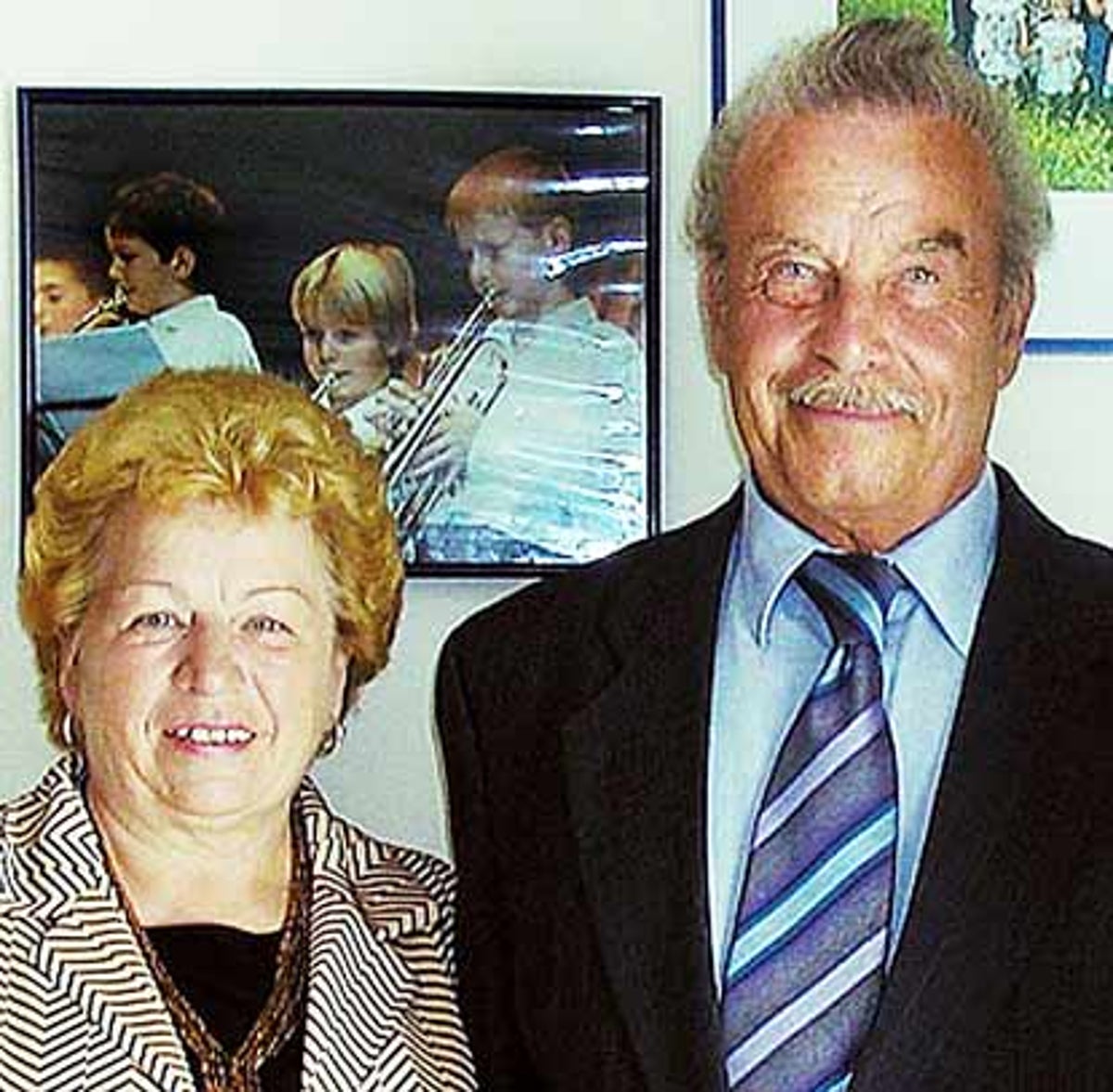Rosemarie Fritzl: Unraveling The Story Behind One Of Austria's Most Shocking Cases
The harrowing tale of Rosemarie Fritzl has sent shockwaves across the globe, shedding light on a dark chapter in Austria's history. This case is not just a story of survival but also a testament to the resilience of the human spirit. Rosemarie Fritzl's ordeal, which unfolded in a basement dungeon, captivated international media and sparked conversations about human rights, mental health, and justice.
Rosemarie Fritzl's case is one of the most infamous incidents in modern history, bringing to light the darker sides of human nature. Her story has sparked widespread discussions about the importance of safeguarding vulnerable individuals and ensuring justice for victims. It also highlights the critical role of community vigilance in preventing such heinous acts.
Through this article, we aim to explore the life of Rosemarie Fritzl, her harrowing experiences, and the aftermath of her captivity. We will delve into the details of her case, examine the psychological implications, and discuss the broader societal implications. By understanding her story, we can work towards a safer and more compassionate world.
Read also:Kylie Jenner Siblings A Closer Look At The Kardashianjenner Clan
Table of Contents
- Biography of Rosemarie Fritzl
- Overview of the Fritzl Case
- Psychological Impact on Rosemarie
- Legal Proceedings and Justice
- Media Coverage and Public Reaction
- Community Response and Awareness
- Human Rights Implications
- Mental Health and Support Systems
- Lessons Learned from the Fritzl Case
- Conclusion and Call to Action
Biography of Rosemarie Fritzl
Rosemarie Fritzl, born on June 21, 1974, is a survivor of one of the most shocking cases of abuse and imprisonment in modern history. Her life took a tragic turn when she was abducted by her father, Josef Fritzl, at the age of 18. Below is a brief overview of her life:
Rosemarie's Early Life
Rosemarie Fritzl grew up in Amstetten, Austria, in a seemingly ordinary family. However, her father, Josef Fritzl, harbored sinister intentions that would later come to light. Before her abduction, Rosemarie lived a normal life, attending school and enjoying time with her family. Little did she know that her life was about to change forever.
Biodata of Rosemarie Fritzl
| Full Name | Rosemarie Fritzl |
|---|---|
| Date of Birth | June 21, 1974 |
| Place of Birth | Amstetten, Austria |
| Occupation | Survivor and Advocate |
| Notable Event | Survivor of Josef Fritzl's imprisonment |
Overview of the Fritzl Case
The Fritzl case is one of the most infamous crimes in history, involving years of imprisonment and abuse. Josef Fritzl, Rosemarie's father, abducted her and kept her in a basement dungeon for over two decades. During this time, she gave birth to seven children, all of whom were fathered by Josef.
Key Details of the Case
- Rosemarie was abducted in 1984 at the age of 18.
- She was imprisoned in a specially constructed basement dungeon.
- Josef Fritzl repeatedly abused her, resulting in the birth of seven children.
- The case came to light in 2008 when one of the children required medical attention.
Psychological Impact on Rosemarie
The psychological impact of Rosemarie Fritzl's ordeal cannot be overstated. Spending over two decades in captivity, isolated from the outside world, has left lasting scars on her mental health. Experts have identified several psychological effects, including post-traumatic stress disorder (PTSD), anxiety, and depression.
Long-Term Effects
According to a study published in the Journal of Trauma and Dissociation, survivors of prolonged captivity often experience severe psychological distress. Rosemarie's case is a prime example of how trauma can manifest in various ways, affecting not only the victim but also their children.
Legal Proceedings and Justice
The legal proceedings against Josef Fritzl were swift and decisive. In 2009, he was sentenced to life imprisonment without the possibility of parole. The court also ordered him to pay compensation to Rosemarie and her children. This case set a precedent for justice in cases of extreme abuse and exploitation.
Read also:Aagmal Unlocking The Secrets Behind This Revolutionary Concept
Key Legal Milestones
- 2008: The case comes to light when one of Rosemarie's children is hospitalized.
- 2009: Josef Fritzl is sentenced to life imprisonment.
- 2010: Rosemarie and her children receive compensation for their suffering.
Media Coverage and Public Reaction
The media coverage of the Fritzl case was extensive, with journalists from around the world flocking to Austria to report on the story. The public reaction was one of shock and disbelief, as people struggled to comprehend the magnitude of the crime. This case highlighted the importance of media in bringing attention to issues of abuse and exploitation.
Impact of Media on Awareness
According to a report by the International Journal of Human Rights, media coverage of high-profile cases like the Fritzl case can lead to increased awareness and action. It encourages discussions about the need for better protection mechanisms for vulnerable individuals.
Community Response and Awareness
The community response to the Fritzl case was a mix of outrage and solidarity. Local organizations and support groups rallied around Rosemarie and her children, providing them with the resources and assistance they needed to rebuild their lives. This case served as a wake-up call for communities worldwide to prioritize the safety and well-being of all individuals.
Initiatives for Change
- Increased funding for mental health services.
- Establishment of support groups for survivors of abuse.
- Public awareness campaigns to educate communities about abuse.
Human Rights Implications
The Fritzl case raises important questions about human rights and the protection of vulnerable individuals. It highlights the need for stronger laws and policies to prevent such crimes and ensure justice for victims. Human rights organizations have called for greater accountability and transparency in addressing cases of abuse and exploitation.
Global Perspective
According to the United Nations, cases like the Fritzl case underscore the importance of international cooperation in combating human rights violations. By working together, countries can create a safer world for all individuals, regardless of their background or circumstances.
Mental Health and Support Systems
Mental health support is crucial for survivors of trauma like Rosemarie Fritzl. Access to counseling, therapy, and other mental health services can help individuals process their experiences and rebuild their lives. Support systems, both formal and informal, play a vital role in facilitating recovery and healing.
Support Systems for Survivors
- Professional counseling and therapy.
- Peer support groups for survivors of abuse.
- Community programs aimed at fostering resilience and empowerment.
Lessons Learned from the Fritzl Case
The Fritzl case offers valuable lessons about the importance of vigilance, empathy, and action. It reminds us that even in the darkest of situations, there is hope for recovery and healing. By learning from this case, we can work towards a future where such crimes are a thing of the past.
Key Takeaways
- Strengthening laws and policies to protect vulnerable individuals.
- Increasing awareness and education about abuse and exploitation.
- Providing comprehensive support for survivors of trauma.
Conclusion and Call to Action
The story of Rosemarie Fritzl is one of resilience, courage, and hope. Despite the unimaginable horrors she endured, she has emerged as a symbol of strength and determination. Her case has sparked important conversations about human rights, mental health, and justice, reminding us of the importance of safeguarding vulnerable individuals.
We encourage readers to take action by supporting organizations that work to prevent abuse and support survivors. Share this article with others to raise awareness about the Fritzl case and its implications. Together, we can create a world where every individual is safe, respected, and valued.


